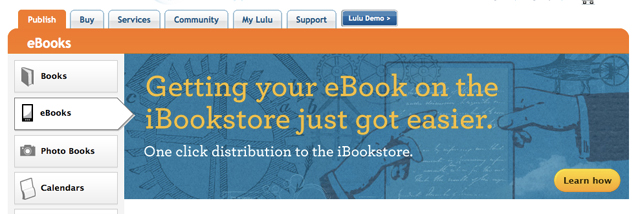Sometimes indie authors need assistance in editing, cover art, or submitting their ebooks for sale in stores. Online digital publisher LULU has been helping authors self-publish for a number of years and provides a myriad of tools to make the entire experience a little bit easier. Today the company announced that it will abandon encrypting ebooks with Digital Rights Management (DRM) on January 15th.
One of the big reasons why the company is giving up on DRM is to make the electronic books more accessible to customers. Normally when you buy a book from Sony, Barnes and Noble, Amazon, or Kobo, they are encrypted. This prevents you from straight up copying the book to your smartphone or tablet, unless you have a dedicated app for that company. In most cases, when you buy books from digital publishing companies, you need Adobe Digital Editions to copy it over to your e-reader or alternative device. This is a tech savvy and time consuming endeavor that confuses people who are new to e-readers and tablets. The fact that TOR, Pottermore, and now LULU are all abandoning file encryption is sparking a major trend in the industry.
Lulu authors with DRM-protected content available today will soon receive an email with additional information about how this change affects their DRM-protected ebooks and the steps required to ensure continued availability of these titles in the Lulu Marketplace. You can also find additional—and more detailed—information about the change here: Announcement: DRM and eBooks Published on the Lulu Marketplace.
Publishing on LULU is free and the fact that there is no DRM now will allow authors to easily submit their digital volumes to other bookstores on their own. Of course, LULU does offer many premium enhancements that may be applicable to people who have little experience in the digital realm. The company also distributes your books to many different bookstores for a fee, saving you the trouble.
Michael Kozlowski is the editor-in-chief at Good e-Reader and has written about audiobooks and e-readers for the past fifteen years. Newspapers and websites such as the CBC, CNET, Engadget, Huffington Post and the New York Times have picked up his articles. He Lives in Vancouver, British Columbia, Canada.

